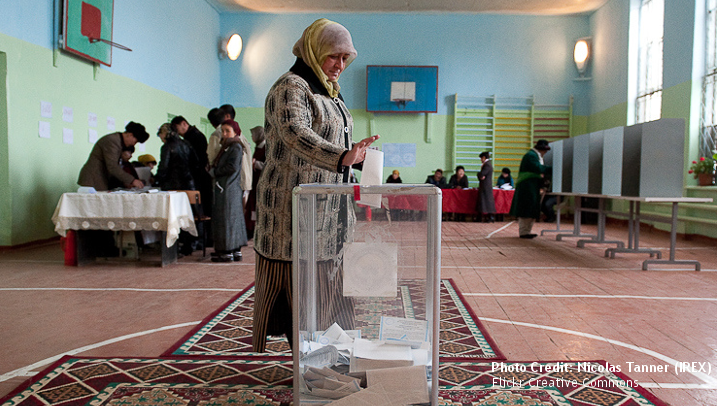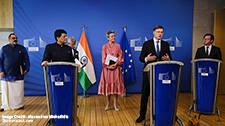Governance

A key feature of the entire region, which stretches from Turkey to China, is the complexity of the processes of state-building and political development in the states that make up the region. This is especially true for the states of the former Soviet Union, that were in many ways forced to build their states from scratch at independence. The process is nowhere more dramatic than in war-ravaged Afghanistan, which is experiencing the perhaps most vibrant political, economic and social changes in the region. But it is also true for more established states, be it China, Pakistan or Turkey, that are experiencing very rapid changes in their political and economic systems.
The processes taking place reach the west mainly in the form of news about velvet revolutions; but the processes taking place in the region are far more complex and differentiated than that, involving the evolution of political systems and the long-term building of statehood. As such, a major emphasis is placed in the ISDP on the processes of state-building and political systems.
Related News
Related Publications
-
The Pendulum Paradox: How China’s Hard Grip Strengthens Taiwan’s Soft Touch
Inspired by the session on soft power in the 2024 Taiwan-Nordic Forum last week in Stockholm (kudos Panellists Professor Jorgen Delman, Professor Hsiao Huichen, and Moderator, Professor Torbjörn Loden), this […]
-
Navigating Uncertainty: How Multinationals Can Hedge Against Rising Tensions in the Taiwan Straits
When geopolitical tensions in critical regions can reshape the landscape of global trade overnight, multinationals are finding it increasingly necessary to adopt sophisticated risk management strategies. The Taiwan Straits, a […]
-
Intersecting Horizons: The Nexus of Maritime Security and Global Health
The maritime industry is often regarded as one of the primary engines of the global economy as it is the backbone of global trade, accounting for around 90 percent of […]
-
EU-Thailand FTA Negotiations: IUU Fishing and Human Rights Remain Obstacles
Thailand’s fishing industry, which at its height saw as many as 200,000 migrant workers from neighboring Laos, Myanmar, and Cambodia caught in a brutal system of abuse, withered global criticism […]
-
Trade, Connectivity and Supply Chains in EU-India Relations
In the decade and a half since 2007 when the EU and India first started their FTA negotiations, the world economic order has undergone a sea change. During that period, […]




